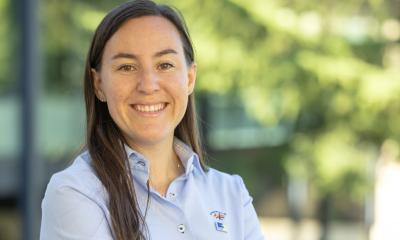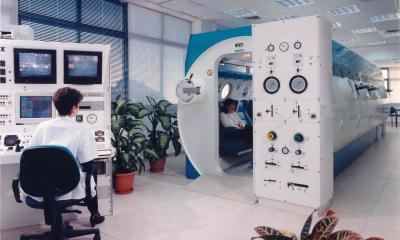Breast cancer research funding to establish
Scientists are closer to discovering why some people respond to breast cancer radiotherapy better than others, according to Breast Cancer Campaign. Dr Laura Smith, at the Leeds Institute of Molecular Medicine, University of Leeds, has been awarded a pilot grant by Breast Cancer Campaign, to study why some types of breast cancers are difficult to destroy with radiotherapy.
The grant forms part of £2 million awarded to 20 projects in the UK and Ireland.
Previous research has shown that breast cancer cells which are difficult to destroy with radiotherapy contained reduced amounts of molecules called GRP78, PSMD9 and DARS.
Dr Smith and her team aim to find out what role these molecules play in preventing radiotherapy from working in breast cancer.
Dr Smith said, "We are grateful for this funding from Breast Cancer Campaign which we hope will lead to a way to predict how successful treatment will be in people with different types of breast cancer."
Arlene Wilkie, Director of Research and Policy, Breast Cancer Campaign said, "This research could lead to a simple test to establish the effectiveness of radiotherapy prior to treatment. Radiotherapy is not suitable for everyone with breast cancer and this would ensure that only those who will benefit from the treatment will receive it."
Notes
Breast Cancer Campaign aims to beat breast cancer by funding innovative world-class research to understand how breast cancer develops, leading to improved diagnosis, treatment, prevention and cure Currently it supports 115 research projects, worth almost £16 million, in 44 centres of excellence across the UK and Ireland Breast cancer is the most common cancer in the UK and accounts for nearly one in three of all cancers in women In the UK, nearly 46,000 new cases of breast cancer are diagnosed each year - that's 125 a day Visit http://www.breastcancercampaign.org Read Chief Executive Pamela Goldberg's blog http://pamelagoldbergblog.blogspot.com/
The 2008 Research Assessment Exercise showed the University of Leeds to be the UK's eighth biggest research powerhouse. The University is one of the largest higher education institutions in the UK and a member of the Russell Group of research-intensive universities. The University's vision is to secure a place among the world's top 50 by 2015. http://www.leeds.ac.uk The Leeds Institute of Molecular Medicine (LIMM) is a research Institute of the University dedicated to defining the molecules involved in human diseases, and using this knowledge to develop novel therapies and new drugs. http://www.limm.leeds.ac.uk/
02.12.2009











